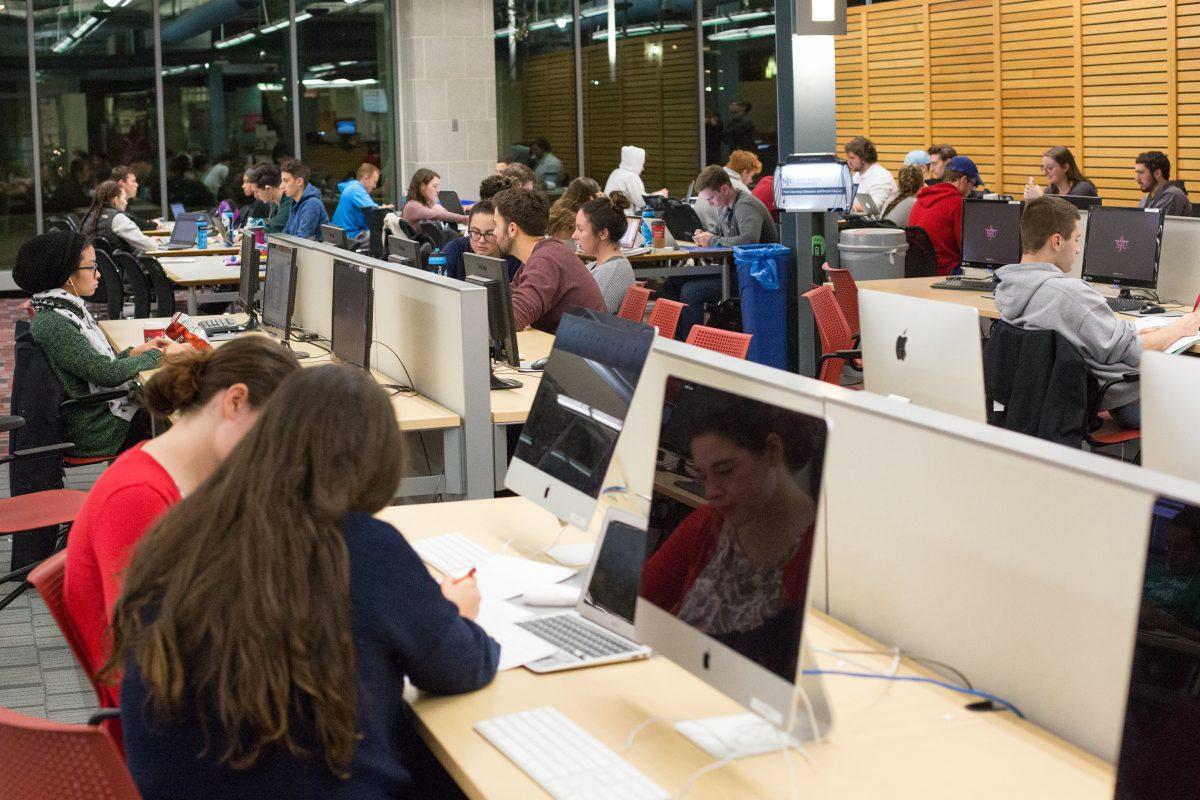How to best prepare for finals, according to psychology
With finals on the horizon, many students stress about their academic performance and, more often than not, turn to caffeine and late nights. While it may be tempting to procrastinate on the growing pile of papers and projects, science says cramming is probably not the best option.
Instead of praying for extra credit, students should consider how the brain functions to best retain valuable information for the upcoming tests standing in front of the holiday vacation. Rather than cramming, psychology points to engaging with the material consistently and creatively while also taking time to manage stress.
Patricia Zaleski-Kramer, Ph.D., visiting assistant professor of psychology, explained the brain has an executive function, which decides whether information is important enough to store for the long-term or to only hold onto it for a short time period. If students want to retain information for finals season, they need to grab the brain’s attention and tell it to save this knowledge.
“It’s really important to be an active learner, to take this information and try to relate it to what you know already,” Zaleski-Kramer said. “Organize it. Don’t just let it sit all over the place.”
For students who haven’t engaged in class material so far, there’s still hope if one can arrange the knowledge from a class into neat categories within the brain. Zaleski-Kramer said to imagine long-term memory as a closet.
“Now we all have a closet we basically throw stuff into and we close the door,” Zaleski-Kramer said. “And then, when you go to look for something, we can’t find it. When you cram, that’s what you’re doing.”
Rather than cramming, students should find a routine that engages the brain but is also realistic and attainable. Night owl Adeline Dove ’19, an interdisciplinary health services major (IHS), enjoys late-night Dunkin runs and motivation from roommates when studying for finals. However, not all of Dove’s college days have been filled with efficient study routines.
“I did that [cram] my freshman year for a bio final. I just studied the whole day before from 11 a.m. through 2 a.m.,” Dove said. “I got to the exam, and I blanked. That was obviously scary as a freshman.”
Academic stress is common for undergraduate students. According to the spring 2017 report from the National College Health Assessment, 30.6 percent of students report stress negatively affecting their individual academic performance. This is a slight increase compared to a report rate of 28.7 percent in 2000. Students are not alone in feeling overwhelmed by course work; 47.5 percent of undergraduate students this year reported academics has been traumatic or difficult to handle.
Political science major Julian Lutz ’19 feels the same academic pressures many college students also experience. He said there are many concerning factors when it comes to studying for finals, including stress about maintaining a high GPA to better prepare for postgraduate careers or studies.
“I come from a family that really stresses doing well in school, and for a long time I didn’t. I came to college and it was this fresh start,” Lutz said. “I kept myself to a high standard and raised the pressure.”
Despite the lure of waiting until the night before an exam to pick up that textbook, students are advised to consider their own sanity first. Studying day and night before an exam may not be the answer to all of one’s hopes and wishes. Instead, put down that fourth cup of coffee and organize that closet of information.














































